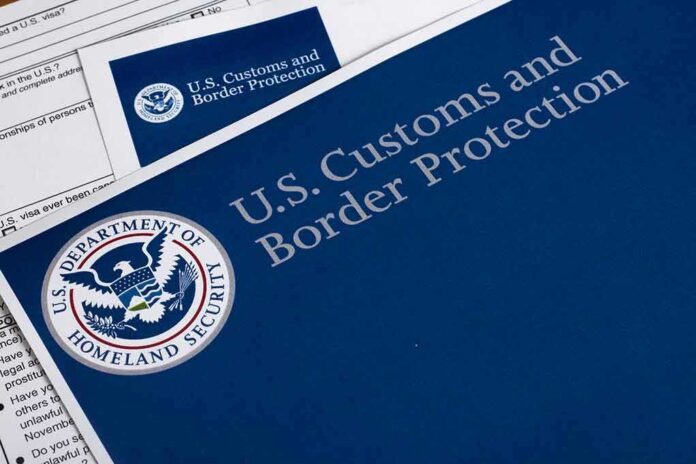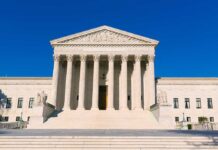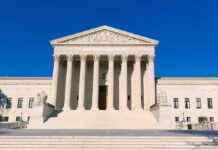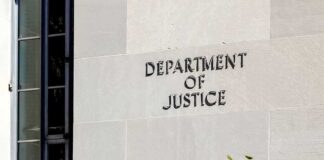
A Boston judge charged an ICE agent with contempt after he arrested an undocumented immigrant during an active trial, sparking debate over immigration enforcement in courtrooms and raising questions about defendants’ rights.
Quick Takes
- ICE agent Brian Sullivan detained Dominican man William Martell-Lebron during his ongoing trial, prompting the judge to dismiss the case.
- Judge Mark Summerville ruled the arrest constituted obstruction of justice and violated the defendant’s right to be present at his own trial.
- The Suffolk County District Attorney’s Office claimed they had no prior knowledge of ICE’s plan to arrest the defendant.
- The arrest highlighted tensions between Boston’s non-cooperation policy with ICE and federal immigration enforcement.
- The incident has raised serious concerns about the impact of immigration enforcement on the judicial process.
Courtroom Arrest Leads to Case Dismissal
ICE agent Brian Sullivan entered a Boston courtroom and arrested William Martell-Lebron, an undocumented immigrant from the Dominican Republic, during his active trial for allegedly providing false information on a driver’s license application. The dramatic intervention halted judicial proceedings and led Boston Municipal Court Judge Mark Summerville to dismiss the case entirely due to what he deemed prosecutorial misconduct. The judge also held Sullivan in contempt of court for the arrest, which occurred after the City of Boston had already refused to cooperate with ICE authorities, highlighting the growing conflict between local and federal law enforcement priorities regarding immigration enforcement.
Following the arrest, ICE agents reportedly ignored a court order to return Martell-Lebron for the continuation of his trial. Judge Summerville ordered an investigation into Sullivan’s actions and criticized the disruption of court proceedings. The Suffolk County District Attorney’s Office expressed surprise at the federal intervention, stating they were unaware of ICE’s presence or intentions until the arrest occurred in their courtroom. Massachusetts State Police confirmed their troopers followed protocol by neither assisting nor obstructing the federal action, maintaining their neutrality in accordance with state policy.
ICE agents arrest illegal alien mid-trial outside Boston courthouse.
A Boston Municipal Court Judge Mark Summerville accused ICE Agent Brian Sullivan of violating the rights of illegal alien William Martell-LeBron and held Sullivan in contempt of court after the ICE agent… pic.twitter.com/BMJ38jg6bt
— Patriot Lady (@angelwoman501) April 1, 2025
Judge Condemns ICE’s Actions
In a strongly worded ruling, Judge Summerville characterized the courtroom arrest as a serious violation of established legal principles. Sullivan did not attend the subsequent court hearing regarding his contempt charge, further escalating tensions between the judicial system and federal immigration enforcement. “This is a disturbing case. This is a case of obstruction of justice. It’s a case of violating a defendant’s right to be present at trial and confront witnesses against him. Couldn’t be more serious,” Judge Summerville declared. The judge’s decision to dismiss all charges against Martell-Lebron underscored his position that the ICE intervention had irreparably damaged the integrity of the trial, establishing a precedent that could affect future immigration enforcement activities in courtroom settings across Massachusetts and potentially beyond.
The Suffolk District Attorney’s Office, led by Kevin Hayden, was expected to address the controversial incident in a news conference. Their representative, Assistant District Attorney Cailin Campbell, emphasized that prosecutors had no prior knowledge of the planned arrest. The office seemed intent on distancing itself from the federal action that disrupted their case, reinforcing their commitment to maintaining independence from federal immigration enforcement while pursuing local criminal prosecutions in accordance with Boston’s established policies.
Clash Between Local and Federal Authorities
The incident highlighted the ongoing tension between sanctuary-leaning municipalities like Boston and federal immigration authorities. Reports suggested the arrest may have been planned with some involvement from state troopers, though the Massachusetts State Police denied any active participation. Boston officials have positioned the city as one that does not actively cooperate with ICE operations, creating an environment where federal agents may feel compelled to take more direct and public enforcement actions rather than relying on local assistance, as evidenced by the dramatic courtroom intervention.
The aftermath of the case presents significant implications for both criminal prosecutions and immigration enforcement. Critics of ICE’s tactics argue that courtroom arrests may discourage undocumented individuals from participating in the justice system, whether as defendants, witnesses, or victims. Supporters of stricter immigration enforcement counter that federal agents are fulfilling their mandate regardless of local policies. Either way, the dismissal of charges against Martell-Lebron represents a significant setback for local prosecutors and raises questions about the coordination between different levels of law enforcement in immigration-related cases.
























